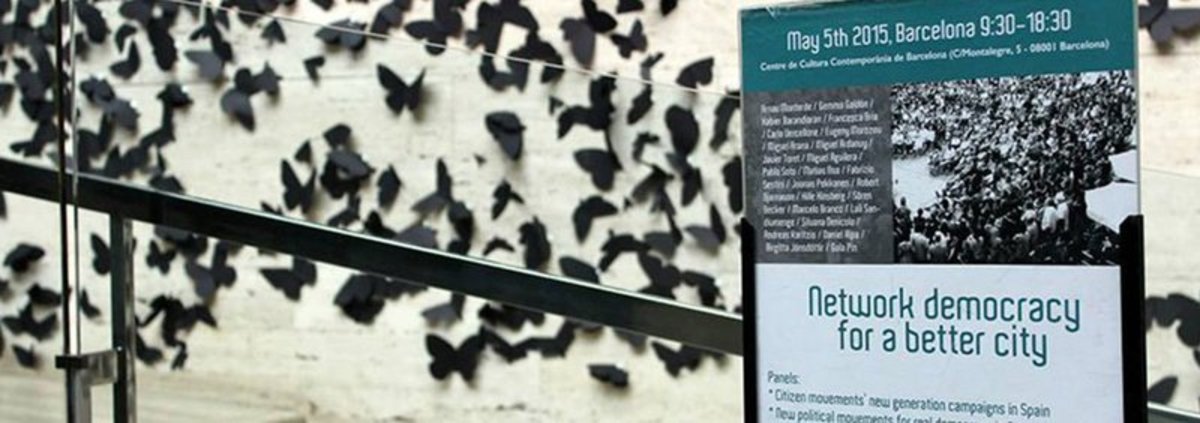
D-CENT (Decentralized Citizens ENgagement Technologies) is a Europe-wide project to create digital tools for direct democracy and economic empowerment. The project, which received €1.9 million funding from the European Union under FP7, wants to create a decentralized social networking platform for large-scale collaboration and decision-making.
The project team includes companies, universities and high-profile organizations such as the European Research Consortium for Informatics and Mathematics (ERCIM), the French CNRS, and NESTA, a U.K. charity dedicated to foster socially relevant innovation with activities ranging from early stage investment to in-depth research and practical programs.
D-CENT announced that it will design structurally sustainable money systems via the creation of a digital ecosystem of blockchain-enabled complementary currencies to use in parallel with conventional ones. This “Monetary Ecology” will advance development in two domains of social innovation: complementary currencies governance systems and decentralized trust management systems.
The project will include Digital Social Currency pilot projects in communities that are already actively designing tools for collective decision-making in local economies:
- - Social Kronas, a blockchain-enabled municipal currency and reward system for political participation in Reykjavik (Iceland);
- - The evolution and decentralization of Eurocat, a complementary currency launched in Barcelona (Spain) in 2014;
- - A decentralized social remuneration system that can reward the contributions that members of the Helsinki Urban-Cooperative Farm (Finland) perform to the common interest of the cooperative. This model will be also piloted at a cultural center in Milan (Italy).
See the D-CENT document “Design of Social Digital Currency” for an overview of the Digital Social Currency pilot projects.
“The Digital Social Currency pilot projects will experiment and test a new notion of proof-of-work: the Social Proof-of-Work, which is roughly the proof that a member in the system is endowed with coins as a reward to an action in the real world while abiding to community rules and enhancing collective values,” states the NESTA website. “By linking democratic deliberation with currency creation through the Social Proof-of-Work, systems can be designed to enable a flexible currency supply set in real time at the light of users trust management dynamics. The basic tenet is to consider social currency as reputation management that can inform the money supply of a complementary currency in terms of tolerance to credit risk.”
According to the project team, most cryptocurrency design approaches tend to privilege the role of software and marginalize human contribution. D-CENT, instead, puts humans back at the center of the currency creation stage.
The project seems related to the concept of blockchain-enabled Local Exchange Trade System (LETS). A LETS establishes a complementary currency for local exchanges where offers, requests and IOUs are logged in a public accounting system visible to all members. In case of a default, the loss is absorbed equally by all members of a LETS, which makes it a mutual credit exchange.
D-CENT is also related to recent proposals of Greece’s Finance Minister Yanis Varoufakis, who wrote a blog post in February proposing a similar IOU-based currency, which he dubbed Future Tax Coin (FT-Coin). Varoufakis is persuaded that blockchain technology could be put to effective use in troubled economies like Greece’s.
D-CENT will develop and document a Freecoin Toolchain software kit based on Bitcoin Core 0.10 and capable of bootstrapping the genesis of new ad-hoc blockchains, integrating the work done in the e-democracy D-CENT pilots and the Social Proof-of-Work concept.










